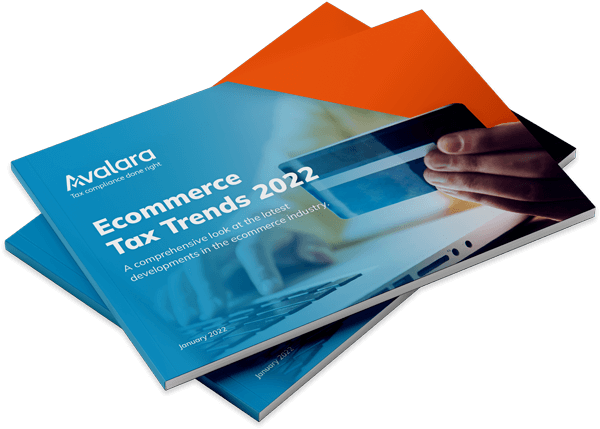
UK Postponed Import VAT Accounting
In January 2021, at the end of the Brexit transitional period, the UK introduced an option for UK VAT registered businesses to defer paying Import VAT when goods are imported into the UK and instead apply a reverse charge (a self-assessment with a simultaneous input tax deduction) in the UK VAT return. Postponed Import VAT Accounting hasn’t been adopted by all businesses yet and there appears to still be some confusion relating to how businesses sign up for it.
Key features of Postponed Import VAT Accounting (PIVA)
- All UK VAT registered businesses can use PIVA – both UK businesses and foreign companies
- No bank or financial guarantee needed
- No need to obtain or use a duty or VAT deferment account
- Sign up to the Customs Declaration Service (CDS) online just once
- Opt to postpone UK Import VAT by using PIVA on each customs declaration
- UK VAT number and EORI number quoted on declaration together with a code triggering PIVA
- Monthly PIVA statements will usually be available to view and download as PDF documents by the sixth working day of the month
- Businesses will take the value of postponed Import VAT shown in the PIVA statement and self-assess that amount as a reverse charge in the VAT return
- HMRC will only show import statements in the online VAT account that are dated within six months from the date of being published.
Cost saving and cash flow benefits of using PIVA
Historically businesses had to physically pay Import VAT along with any customs duty before HMRC would release the goods. In practice this often meant that the freight agent would pay the amount on behalf of the importer and then recharge this. Freight agents also would use their deferment account and charge business for this service. In addition, Import VAT could historically only be recovered using a C79 certificate – these multi-coloured certificates were mailed out manually by HMRC and often went missing in the post or arrived late.
The benefit of PIVA is that importers no longer need to physically pay Import VAT at the border, therefore improving cash flow and avoiding additional charges from freight agents, and no need to rely on a C79 certificate actually arriving in the post. By signing up to the Customs Declaration Service, instructing the freight agent to apply PIVA and then downloading the PIVA statement each month – businesses can really streamline their import VAT process, improve cash flow, minimise risk and improve audit defence.
Key steps to using PIVA
1. The main prerequisite requirement to using PIVA is to have a UK VAT registration number. Speak to one of Avalara’s VAT experts about obtaining a UK VAT registration.
2. Once a business is UK VAT registered, it needs to register online to obtain access to the Customs Declaration Service (one time only). Businesses will need to provide the following information to HMRC to register for the CDS:
- Government Gateway user ID (businesses can register for this service at the same time if needed)
- Economic Operator Registration Identification (EORI) number (businesses can register for this at the same time if needed)
Business details:
Name and Address
Date of establishment
UTR number (unless overseas business).
3. Instruct freight and customs agents (or suppliers if they are preparing the import entry), to apply to postpone import VAT using PIVA on the customs declaration. This is done one of two ways, depending on whether CDS or CHIEF systems are being used by the importer/agent:
CDS
Entering the Importer’s UK VAT registration number at header level in Data Element 3/40.
CHIEF
Entering the Importer’s EORI number (starting with GB) into Box 8 (Header Consignee) of the customs declaration or, if applicable, the Importer’s UK VAT registration number in Box 44h (Registered Consignee). Enter the Method of Payment code (MOP) ‘G’ on VAT Item Tax lines (SAD box 47e) as the method of payment.
4. Each month, access and download the Monthly Postponed Import VAT Accounting statements online.
- Log in using the Government Gateway User ID and password.
- Businesses will then be prompted to enter the security code that is sent to the nominated telephone number
- Once logged in, businesses should select ‘View statements’ under the Postponed Import VAT statements section.
- Businesses can download the PIVA statements as PDFs.
5. Use the figures in the PIVA statement to self-account for Import VAT in the VAT return as a reverse charge.
Box on VAT return | What to include |
Box 1 | Include the Import VAT due in this period on imports accounted for through PIVA based on monthly statement. |
Box 4 | Include the Import VAT to be reclaimed in this period on imports accounted for through PIVA based on monthly statement and usual rules on VAT recovery. |
Box 7 | Include the total value of all imports of goods in this period, not including any VAT. |
Some additional considerations:
- While the monthly statement contains the information to support the claim for VAT recovery (the Box 4 entry), businesses should remember that the normal rules for recovering VAT still apply.
- HMRC have reiterated their new policy that only the owner of the goods is entitled to recovery Import VAT. Therefore businesses need to ensure that the importer of the goods is also the owner, otherwise the importer may not be entitled to recover the Import VAT even where postponed.
- Businesses should ensure they are regularly downloading the PDF invoices and storing these securely so that they are readily available in case of audit, inspection or query from HMRC.
- Businesses should consider reconciling their import and ERP data with the amounts shown on the monthly statements.
- Where Import VAT has not been postponed and has been physically paid at the border, a C79 certificate is still required.
Speak to one of our experts today to find out how Avalara can assist with UK VAT compliance.
Need help with your UK VAT compliance?
Researching UK VAT legislation is the first step to understanding your VAT compliance needs. Avalara has a range of solutions that can help your business depending on where and how you trade.
Stay up to date
Sign up today for our free newsletter and receive the latest indirect tax updates impacting businesses selling internationally straight to your inbox.




